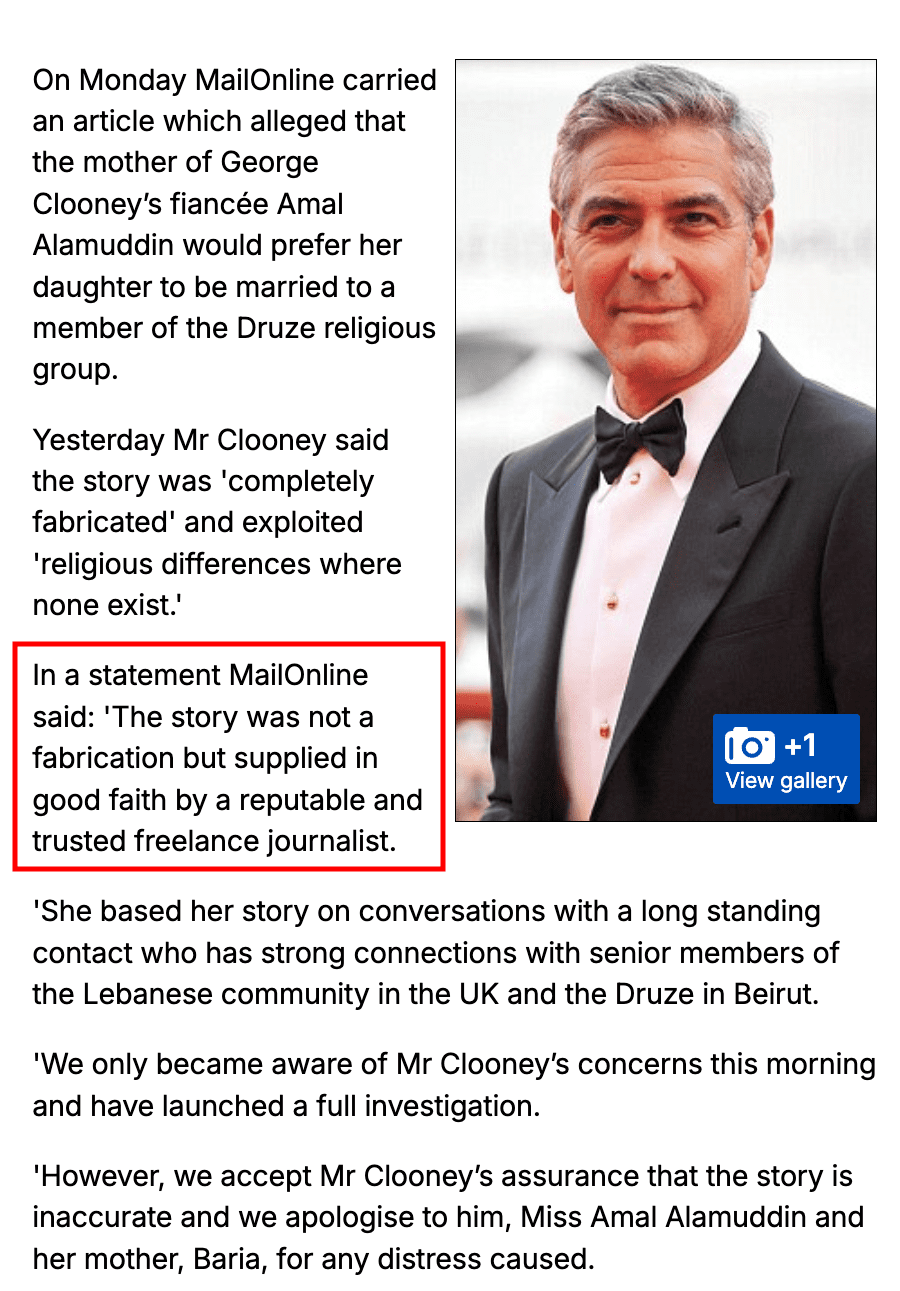In this guide, we’ll explain how to apologize online the right way when confronted with a negative review or difficult feedback.
Your online reputation isn’t just what people say about you; it’s also about how you take responsibility and react to those comments.
No matter how incredible your product or service may be, every company is bound to make mistakes, and you’ll always encounter unhappy customers. And unfortunately, today’s customers may even rip you, your business, or your reputation to shreds on social media sites like Facebook and X, then leave scathing reviews on sites like Google and Yelp.
Sure, it might be a misunderstanding. Or it might actually be your fault. Either way, you have to take responsibility and offer sincere remorse for the person’s bad experience.
When dealing with errors, negative reviews and disgruntled customers, apologizing should always be your first reaction. But that slice of humble pie can be hard to eat, especially if you don’t believe you’re in the wrong or aren’t willing to see the other person’s perspective.
Most companies stink at apologizing, but if you learn to do it right, you can win over customers, even if you have negative reviews online or poor feedback on social media.
It’s possible to create a robust, positive online reputation even if you’re starting from zero or rebounding from a PR crisis. Call us at
844-230-3803
for more information.
The Apology Comes First

As humans, we have a basic instinct to protect ourselves, which can lead us to be defensive, even when we know we’re in the wrong. We want to explain to people why we made the mistake, even if we feel bad for what happened.
However, when it comes to your brand, this can be seen as an insincere apology and cause problems online.
By trying to explain away what happened, it can seem as though you’re not taking full responsibility for your company’s actions. At that point, any apology that comes afterward won’t feel like sincere remorse.
Example: George Clooney and MailOnline
When MailOnline posted a story about George Clooney’s wedding, the actor called them out on getting the facts wrong. Instead of immediately accepting responsibility, MailOnline opted to defend itself and offer excuses. The statement eventually did go on to issue an actual apology. However, by that point, though, their point had been made: It wasn’t really a mistake.


First, the written apology comes across as false. Second, it’s buried farther down in the article. That means that some people may not read that far at all. They’ll assume that the initial report contained factual information.
How much more powerful would this story have been for MailOnline if the written apology had come first? It could always be followed by why the mistake happened. Or no more detail at all, even.
The Lesson: When responding to an angry customer or a negative review, the first words you type should be, “I’m sorry.” Sometimes, an explanation makes sense, and the person’s comments may even be unfair. No matter what, though, every business should start with an apology for the bad experience and whatever actions upset the customer.
Leave Excuses Out of It


After apologizing, avoid the urge to write “but…” and then excuse the mistake. Even if your point is to explain what happened for clarity’s sake, this can feel to the customer like you’re negating the good apology you just issued.
Essentially, framing your response this way communicates that while you may be apologetic, there was actually a good reason for the situation to have occurred, and the person’s complaint isn’t all that reasonable.
The person who left the review will be unsatisfied with this type of response. Also, current and potential customers who are paying attention to the review will also be unimpressed.
Example: Kitchen Aid Mis-Tweet
Back in 2012, a rogue Kitchen Aid employee posted an extremely offensive tweet on social media about Barack Obama’s grandmother, who had recently passed away. Kitchen Aid (or its PR team) immediately deleted the tweet and apologized via social media.
It would’ve been straightforward to say, “We’re sorry, but the tweet was made by an employee who does not represent the Kitchen Aid brand and is no longer with the company.” That’s not what they did, though. Instead, here’s what the brand posted:
Deepest apologies for an irresponsible tweet that is in no way a representation of the brand’s opinion.
I would like to personally apologize to President Barack Obama, his family and everyone on Twitter for the offensive tweet sent earlier.
There is not a “but” to be seen, which shows the brand has decided to fully take responsibility for what happened.
Respond to Reviews Fast
The internet moves so fast, especially when it comes to social media. The longer an unanswered complaint is out there, the more angry people get about it.
Consider this: BrightLocal found that most consumers expect a response to their review within 2 to 3 days and no longer than a week. For people who use social media as a way to connect with and comment about brands, that timeframe is even shorter, down to mere hours.
For a variety of reasons, it isn’t always possible for a business owner to respond to a negative comment as soon as it’s posted. That ignored comment is causing damage, though, even if you plan to eventually get to it.
Almost 62% of online shoppers search for a company online if they’re not familiar with it. Very few of them will make a purchase if negative reviews show up on the search results page. Plus, less than half of consumers would use a business that doesn’t respond to its reviews at all.
If you’re struggling with review management on social media or review sites, consider hiring an individual or team that can help.
We work with clients to help them build their online reputation and take control of their digital presence. Give us a call at
844-230-3803
to learn more.
Listening Tools To Help With Review Management


Luckily, there are a lot of tools that can help you listen to online conversations. You’ll also receive alerts when your brand name is mentioned on social media or elsewhere on the web.
- Google Alerts: With Google Alerts, you can easily monitor brand mentions across the internet for free. You’ll get an email notification whenever you’re mentioned, which is super convenient.
- Sprout Social: You can type your brand name into this tool to see who is talking about your company. Monitor tons of social media networks, blogs, and other online sources. You can also get an overall feel for the sentiment people have about your company and the top keywords people associate with your brand.
- X Pro (formerly TweetDeck): This is a great option if your customers are active on the social media platform X. It helps you filter out the noise, keep an eye on social media feeds, and respond quickly when someone comments about or to your brand.
Also, most review sites, like Trustpilot and Yelp, will send you a notification as soon as someone leaves a new review on your business page.
Move the Conversation to a Private Forum


Once you’ve apologized initially, try to take the conversation offline by getting the customer’s contact information. It often doesn’t make sense, both for branding purposes and for logistical reasons, to hold the conversation publicly, whether you’re on a review site or social media account.
This is a good practice, even if the issue is basically solved by that point. When it comes to chronic complainers, it’s better for them to have your direct contact information than to continue leaving negative reviews online in the future.
Plus, if the problem hasn’t been completely handled yet, speaking with the person one-on-one gives you time to figure out exactly what will solve the problem for them. After taking steps to make them happy with the result, you can ask that they update their review to include context about the outcome. (It’s smart for you to do the same.)
Explain How You’ll Fix the Problem


People who read your reviews and comments in the future want to know that they won’t experience the same problems if they purchase a product from your company or use your services. It’s great to know that the person with the complaint received a refund or other benefits. However, the truth is that the customer still had to go through a hassle in the first place.
Don’t worry if the solution is too complex to explain on the forum where the complaint was made. Sometimes, you don’t have to go into details. You just have to talk about the key elements of how you’ll prevent the problem in the future.
Sometimes, explaining the solution to the customer takes way too much time. But you can explain from the heart that you’re working to rectify the situation so that it never happens again.
Set Policies in Place


Lastly, as your company grows, make sure you have clear policies for responding to negative reviews and comments on social media and other platforms.
Avoid relying too much on scripts, which can sound canned and insincere. Instead, provide a template to your team but give them the authority to respond in whatever way they think is best.
Teach your employees to always apologize first instead of getting defensive. Also, select the right people for the job. Some employees, while great at solving problems, are not excellent at crafting sincere apologies. That’s OK! Not everyone is going to be good at everything.
However, it’s essential for you, as the leader, to identify those who are good at apologizing and put them in charge of this crucial task.
An apology can salvage a sale, even when the initial experience is disastrous. Make this a priority for your company. You’ll repair customer relationships and earn loyalty when mistakes happen.
Professional Online Reputation Management Can Help
At OnlineReputation.com, we provide must-know information to individuals and businesses who want to create, grow or repair their digital reputation. Whether you’re prioritizing your personal or professional online reputation, our advice and team of experts can help.
Through our parent company, NetReputation, we offer a range of online reputation management services. Our five-step ORM strategy ensures we cover every base to create a tailored program that’s right for you. Our services include social media listening and review management.
Get started with a free analysis here.















